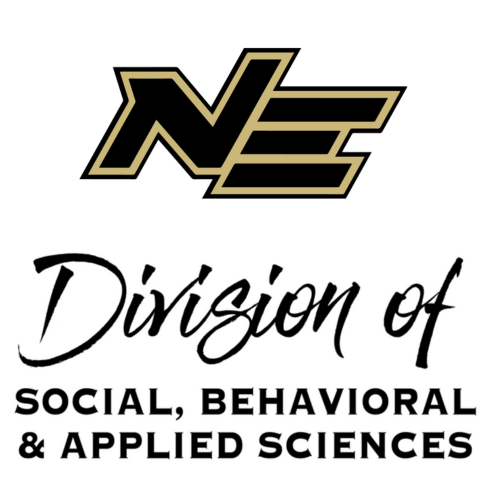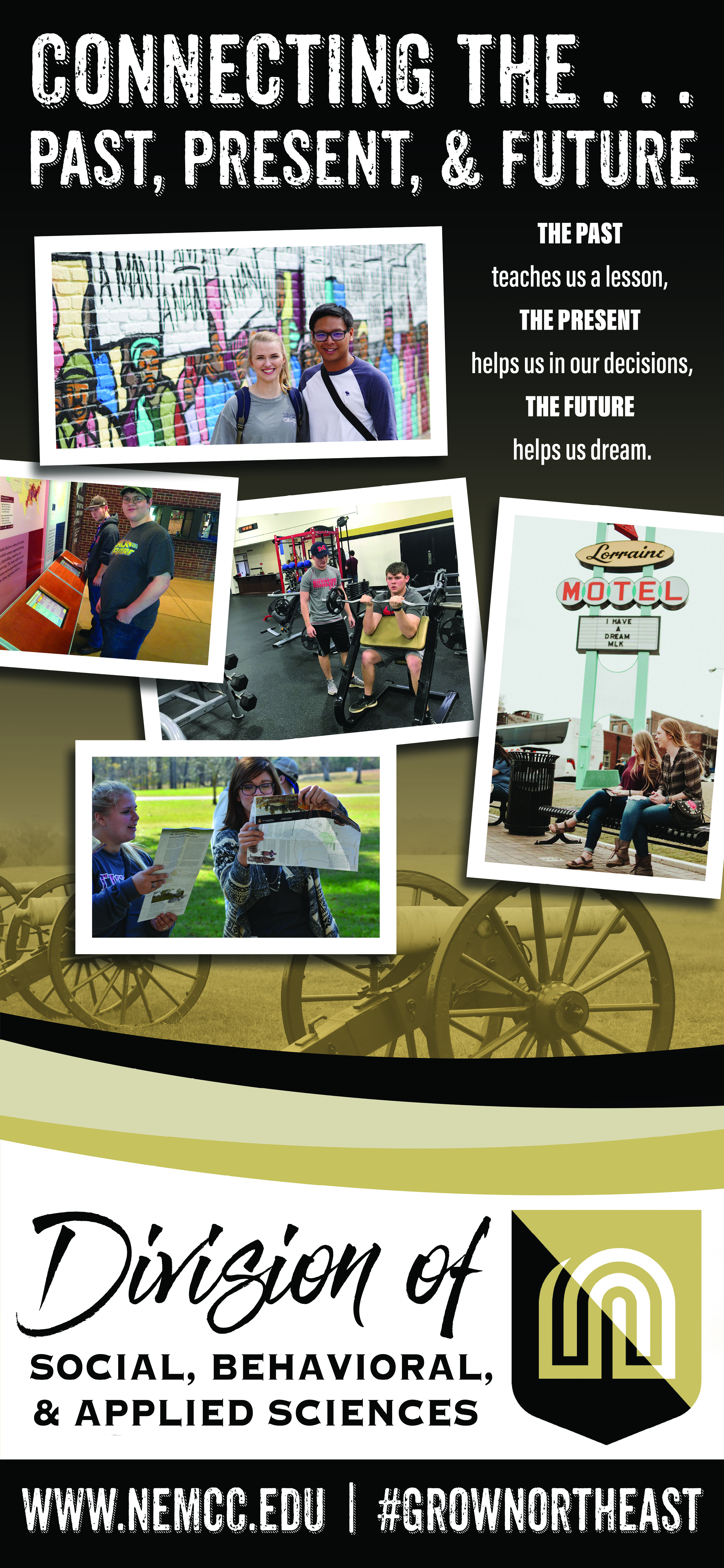Connecting The Past, Present, and Future
Division of Social, Behavioral and Applied Sciences

The Division of Social, Behavioral and Applied Sciences is housed in Patterson and Gordon Halls and includes 16 University Parallel Programs and the following disciplines; Social and Behavioral Sciences (Economics; Geography; History; Political Science; Psychology, Sociology, and Applied Sciences (Accounting; Athletic Training; Business Administration; Business Communications; Criminal Justice; Elementary Education; Exercise Science; Family and Consumer Science; Health, Physical Education, as well as Recreation Lecture Courses (HPR); and Social Work.
In 2024-2025, over 6,850 students took classes in the division, an in-crease of approximately 350 over the previous academic year. The division included 13 full-time faculty members and an academic head, all of whom advise students. Additionally, the division averaged 10 adjuncts per semester, some of whom were employed full-time at the college in other capacities. Each instructor has a minimum of a master’s degree with course work in the teaching field. Seven full-time faculty members have doctorates.
Excellence in the classroom is the division’s primary goal. Within the past five years, each discipline has participated in a state curriculum review which includes articulation with senior institutions and other community colleges to update course descriptions, syllabi, and programs of study. The division itself underwent a Program Review in the fall of 2020, leading to the implementation of several curriculum changes and course updates.
Classes are characterized by innovative pedagogy, including field trips, instructor-created podcasts and videos, interactive learning exercises, a research course, and raising a virtual child. With the college’s iPad initiative, instructors have found numerous ways to incorporate the device into the classroom from testing to requiring students to create original material.
As part of this innovative pedagogy, the division began moving towards Open Educational Resources (OER) in 2016. Since then, faculty have received seven grants to develop OER material. Currently, a majority of the division’s courses, especially those that make up the academic core curriculum, use OER.
In order to better facilitate collaboration and create a more comfortable environment for adult learners, the division replaced the individual desks in all Patterson Hall classrooms and one Gordon Hall class-room with conference tables. Instructional equipment includes modern audio-visual equipment, including Apple TVs, iPads, projectors, and screens.
This year division instructors took advantage of many professional development opportunities. The entire division attended a series of presentations developed by their peers. Individual instructors also participated in training specific to their fields, including an accounting and tax workshop, an economics conference sponsored by the Federal Reserve Board, and a national geography conference.
The faculty members’ commitment to quality education and advising for Northeast students is apparent as they continually update teaching methods and participate in professional development. By offering a number of courses that are a part of the core curriculum, the division impacts the lives and academic development of most Northeast students.

